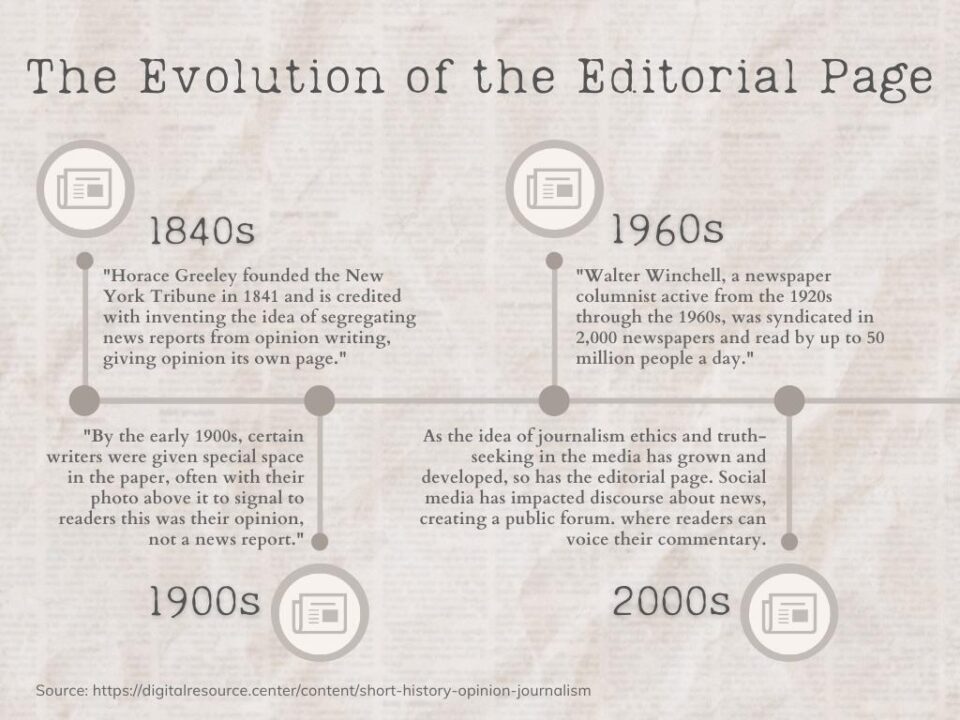
Last week, I clicked on a provocative headline on my Twitter feed. Scrolling down the article, I found that it was actually an opinion editorial breaking down a topic that has been widely discussed across news platforms for days.
It didn’t have interviews or the in-depth coverage that I originally expected, but it did open my mind to a new perspective on a complex public debate.
In the age of online news and social media headlines, editorial columns still provide a valuable public service and uphold the function of news media as a public forum.
The editorial aspect of news reporting should not undermine the accuracy of the overall paper, nor should it adhere to a less rigorous standard of truthfulness. To borrow an idea from the late Wall Street Journal editor Robert Bartley, “the editorial pages serve to deliver the news of ideas, while the rest of the paper serves to deliver the news of events.”
This supports an idea that is as old as this country itself.
Early colonial newspapers were openly opinionated and created platforms for partisan debates and other ideological commentary. It wasn’t until 1841 that news and opinions were separated in a newspaper and the editorial page was born.
As the idea of journalism ethics and truth-seeking in the media has grown and developed, so has the editorial page, and both should follow a similar list of stringent ethical guidelines. This includes clearly distinguishing between commentary and news reporting to avoid confusion.
Still, the rise in Americans’ distrust of news media is a dangerous and accelerating problem. Republicans with “at least some” trust in national news organizations has dropped from 70% in 2016 to 35% in 2021, according to Pew Research Center. This is compared to 78% media trust in Democrats or Democratic-leaning independents. This leads some to point fingers at editorials.
If you’re worried about the impacts of this issue, you’re not alone. Made-up news/information is ranked between violent crime and the gap between the rich and poor as problems that Americans view as big issues in the country today. It ranks above climate change, terrorism and sexism.
According to Pew Research Center, 68% of Americans view made-up news and information as having a big impact on Americans’ confidence in government and 51% say this impacts political leaders’ ability to get work done. In 2021, a median of 17% of adults said democracy in the U.S. is a good example for other countries to follow.
While some blame this disturbing trend on editorial and opinion articles, I believe this to be a symptom of the internet and the current political climate. Now, more than ever, we need structured, researched ideas to enter the public conscience.
If it opens a flurry of Twitter replies or sparks a Facebook debate, it is facilitating a central function of the news media: acting as a public forum.
But when the line is blurred – when we can’t tell what’s news, what’s editorial and what’s exaggeration or entertainment – that’s where the problem starts.
Angeline Terry can be reached at Terr2351@stthomas.edu.



